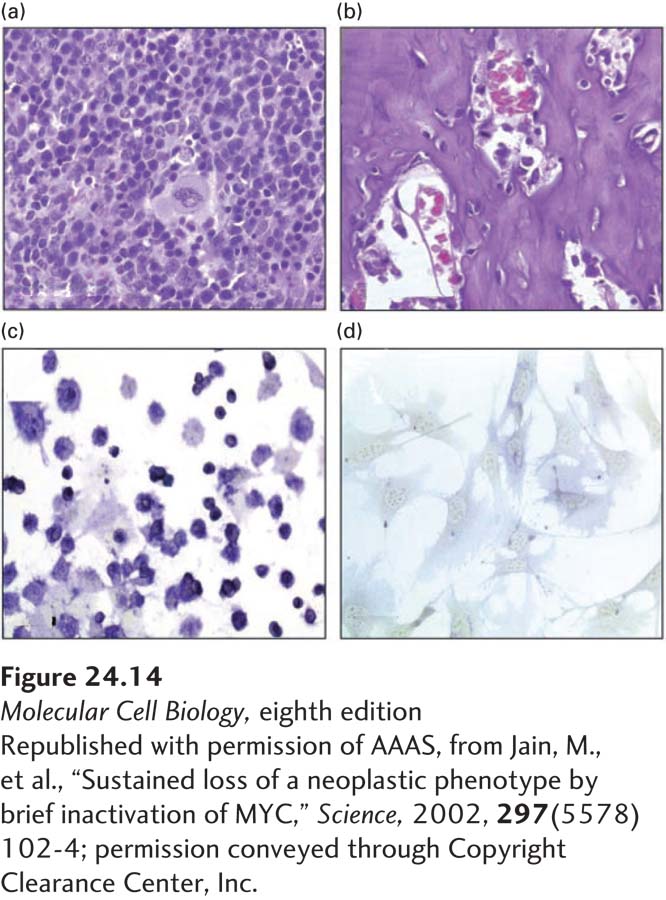
EXPERIMENTAL FIGURE 24- 14 MYC is continuously needed for tumor growth. Transgenic mice were developed in which MYC expression was driven by the Tet- Off system. One percent of such mice develop osteogenic sarcomas. Wild- type mice were transplanted with osteogenic sarcomas, which causes them to develop the disease. In the transplanted mice, MYC expression was repressed by treating the mice with doxycycline. This treatment caused the osteogenic sarcomas to stop proliferating (a) and differentiate into mature osteocytes (b). After MYC expression was turned off, the tumor cells also lost alkaline phosphatase activity, a marker for osteogenic sarcomas (c, d). Surprisingly, re- expression of MYC protein did not trigger a return to the sarcoma state.
[Republished with permission of AAAS, from Jain, M., et al., “Sustained loss of a neoplastic phenotype by brief inactivation of MYC,” Science, 2002, 297(5578)102- 4; permission conveyed through Copyright Clearance Center, Inc.]
[Leave] [Close]